Freshwater Tree Surgeons (PO40): Although there naturally are numerous chores that you can do by yourself in your garden, you'll find there are certain jobs that shouldn't be attempted unless you know exactly what you're doing and you've got the correct tools and equipment to do them safely. A task that may fall into this area is tree maintenance. Although you might believe that it is easy just to chop several branches off of a tree, there's far more involved than you would believe. If this process is not performed at the right time and not done in the proper way you could harm the trees, which may in the long term cost more than if you'd have recruited a competent tree surgeon in the first place. If you've got higher trees in your garden then it would be stupid to even contemplate trying to lop them without help, since, aside from anything else, you could soon find yourself in A&E with a broken bone or perhaps even worse. For this reason and others, your main concern should be to obtain a decent tree care specialist near you.
Plenty of issues can crop up with trees, the most obvious being when a tree has been damaged by the wind and it's threatening to fall onto a road or a structure. Local emergency tree surgeons are typically brought in to make it safe, and you will have probably seen them at work during stormy weather. Nevertheless, tree surgeons are versatile and can also be called in for such tasks as surveying trees for disease or damage so that these problems will be tackled before they get any worse, thinning or reducing trees to generate more space and light in the garden, doing away with old tree stumps which are in the way and developing tree management or maintenance plans to keep the trees in good shape.
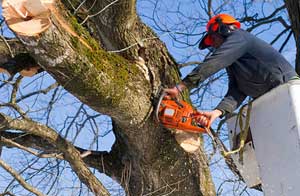
It's not purely because of safety issues that you shouldn't tackle work on trees on your own, there are also checks and inspections that need to be done. Your trees might be subject to a Tree Preservation Order or you might live within a Conservation Area, either of which affects what can be done to your trees. An experienced tree surgeon will be quite capable of helping you with all of this stuff and should additionally be registered with the Arboricultural Association, to give you peace of mind concerning any work that is being undertaken. The appropriate public liability insurance is vital where tree care is involved, therefore make certain your chosen tree surgeon is properly insured.
It is vitally important that a tree surgeon turns up with all the essential equipment and tools to do the process safely and correctly, since the safety of your property and family is the primary concern when this sort of work is taking place. With all the correct gear and the ability to use it properly, tree surgery can be carried out in a manner which poses no threat to those in the area, nor to the tree surgeon.
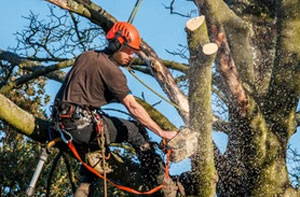
Using tree climbing and tree surgery gear comes naturally to a skilled tree surgeon, and he or she will happily get working using lowering devices, harnesses, rigging ropes, climbing ropes, wood chippers, axes, stump grinding equipment, winches, slacklines, pole saws, chain saws and rigging plates. Much of this equipment is really sophisticated and has been developed to make the tree surgery process both safer and simpler.
You'll have to ensure that the tree surgeon will responsibly remove and get rid of all the waste materials from the area once the process is finished. Correctly disposing of any generated waste materials must be a moral responsibility for any genuine tree surgeon. It's vital that they have a valid waste carriers licence and that the waste branches and wood are removed from your property and discarded correctly.

Tree surgeons don't only do their thing in Freshwater itself, but also throughout the surrounding villages and areas such as Thorley, Shalcombe, Brook, Chessell, Thorley Street, Hulverstone, Yarmouth, Bouldnor, Norton, Pound Green, Freshwater Bay, Easton, School Green, Norton Green, Afton, Totland and so forth. So, wheresoever in the Freshwater locale you call home, it will be possible to get a professional tree surgeon, and also throughout the county of Isle of Wight and surrounding counties.
Tree surgeons don't only climb, remove and prune trees using specialized tools and equipment, they also manage their preservation and protection. Understanding the safety of trees and woodland, to pinpoint potential hazards is also part of their duties. Making sure trees are disease-free, healthy and in a position to prosper and survive, is a vital part of their obligations.
Tree surgery is widely available in Freshwater and also in nearby places like: Chessell, Thorley, Norton Green, Easton, Bouldnor, Yarmouth, Hulverstone, Thorley Street, Norton, Shalcombe, Brook, Totland, Afton, Freshwater Bay, Pound Green, School Green, and in these postcodes PO40 9DF, PO40 9XD, PO40 9UD, PO40 9AJ, PO40 9EW, PO40 9QB, PO40 9TA, PO40 9EL, PO40 9BY, and PO40 9QJ. Local Freshwater tree surgeons will most likely have the postcode PO40 and the dialling code 01983.
For this type of assistance it's certainly wise to bring in an approved local tree surgeon. Freshwater homeowners can benefit from the skills and knowledge that are the trademark of a seasoned professional.
Obtaining Assistance and Help
When you're speaking to local Freshwater tree surgeons, you must ask them questions such as: Have you got employment and public liability insurance? Do your personnel and you have the correct qualifications and certificates (for chainsaw use and tree care)? Will you give me a quote in writing? Does your work adhere to the British Standard (BS3998)? Are you joined to a professional trade organisation (i.e. The Arboricultural Association or the International Society of Arboriculture)? Can you produce references from past customers? to be certain that they know what they are doing and that they won't cause permanent damage to your prized trees. If the tree surgeon doesn't give you acceptable responses to any of those questions, look elsewhere.

To find a great deal of useful advice about how to pick a reliable tree surgeon, in conjunction with a searchable directory of certified tree surgeons in the UK, you can visit the Arboricultural Association website. Another good site offering a "find an arborist (tree surgeon)" tool (here) and a "verify tree surgeon credentials" tool, is the International Society of Arboriculture (ISA), where there is obviously a lot more information on tree surgery and management. You are also able to study detailed information on tree surgery as a profession if you visit the trusty old Wikipedia "Arborist" page here. You could try a trade portal such as Rated People or My Builder, where credentials have been previously checked out and testimonials are available to look at, to save a bit of time. A Government financed organisation where you can also get hold of authentic tradesmen such as tree surgeons, comes in the shape of Trustmark. Trustmark concentrates on customer service, technical competence and good trading practices with the protection of consumers at its core.
Emergency Tree Surgery Freshwater
There might be situations where you need to contact a tree surgeon in an emergency, if you have sizeable trees growing in your Freshwater garden. When the weather conditions are windy and stormy in Freshwater, tree surgeons expect to see a rise in emergency calls, and thankfully most of them provide a 24/7 service for this very reason. The chances of injury or damage is increased during stormy weather, with branches snapping off and plunging to the ground, and occasionally even entire trees toppling over. Prevention is definitely preferable to having to deal with the aftermath, and typical issues that can be caused by plummeting tree limbs and branches include smashed greenhouses, splintered sheds, broken garden furniture and damaged fences.
There is also a requirement for emergency tree care services by the local council in the Freshwater area, when public pavements, streets and railway tracks get blocked by fallen branches and trees.
Even after the emergency tree work has been done, a tree that's lost a lot of branches may have to be "re-balanced", and this could be carried out for aesthetic reasons or because the tree will now be lopsided, with the weight unevenly distributed, quite possibly resulting in additional issues. A local Freshwater tree surgeon who provides 24 hour emergency services should be called to handle all these issues, and you shouldn't attempt to sort them out by yourself. You can also get 24 hour emergency tree surgery in Thorley, Shalcombe, Brook, Chessell, Thorley Street, Hulverstone, Yarmouth, Bouldnor, Norton, Pound Green, Freshwater Bay, Easton, School Green, Norton Green, Afton, Totland, and Freshwater, Isle of Wight. (Tags: Emergency Tree Services Freshwater, Emergency Tree Care Freshwater, Emergency Call-Outs Freshwater, Emergency Tree Surgery Freshwater).
Crown Thinning Freshwater

The elimination of a lot of the smallest branches towards the outer crown of a tree to create a leaf density that's uniform all over and does not alter the shape or size of the tree, is known as crown thinning. This work is typically only carried out on broad leafed trees and is to lessen the total weight of the crown, to minimize the tree's wind resistance, to enable more sunlight throughout, to lower the stress upon larger limbs because of gravity, snow, ice, or wind or to prevent the tree from being uprooted in windy conditions. Crown thinning isn't supposed to alter the all round size and structure of the tree, but should establish a uniform foliage density surrounding uniformly spaced branches. It should be possible to obtain crown thinning specialists in Thorley, Shalcombe, Brook, Chessell, Thorley Street, Hulverstone, Yarmouth, Bouldnor, Norton, Pound Green, Freshwater Bay, Easton, School Green, Norton Green, Afton, Totland, and the Freshwater area.
Day to Day Duties of a Tree Surgeon
- Assess the health of trees and create plans of action.
- Fell and remove trees and perform stump grinding.
- Tidy area on completion and remove waste from customer's site.
- Produce tree survey reports for both domestic and commercial clients.
- Be proficient with power tools and other powered equipment.
- Service equipment like wood chippers and chainsaws.
- Cut and chip branches and logs.
- Establish dangers presented by trees.
- Plant trees and vegetation.
- Create on-site or telephone quotes for clients.
- Deal with customers and complete admin duties.
- Climb trees to prune or remove branches as required.
Woodland Clearance Freshwater

Woodland clearance in the Freshwater area must only be commenced after any restrictions and regulatory measures have been established and observed. A professional tree surgeon in Freshwater will offer you a full end to end service that will observe all laws and covenants on the land, and will also complete the work an eco-friendly manner.
A detailed site survey will be performed by a professional tree surgeon who will also collaborate with woodland organisations and authorities to make certain your clearance is undertaken safely and legally. If it is learned that protected animal or plant life is on the site that needs clearing, it may be necessary to transfer such flora and fauna, on approval from the appropriate authorities.
It will be far more economical to hire a certified Freshwater tree surgeon to undertake your clearance project, because the felling, mulching and chipping equipment that is necessary is extremely costly.
The ISA - International Society of Arboriculture
The International Society of Arboriculture (ISA) is a non-profit, international organisation that's based in the United States, fostering the awareness and benefits of trees. Serving the tree care industry across the globe, the ISA is a membership association that champions the professional practice of arboriculture, providing accreditations for tree care professionals.
Promoting best tree care practices, and focusing on education, technology and research, the ISA provides educational services, events and publications improve the knowledge, skills and arboricultural expertise of those involved in the tree care industry.
An agreement signed in 2016 between the International Society of Arboriculture and the Arboricultural Association, saw the AA become an associate organisation of the ISA. The relationship between the two was therefore strengthened, and additional opportunities made available for UK and Ireland ISA members. Arboricultural Association members in the United Kingdom and Ireland now benefit from being part of a network of tree care professionals from all around the world. The International Society of Arboriculture now has professional affiliates and associate organisations in New Zealand, Australia, South Africa, Europe, Asia, and the UK, and now has an international membership of over 22,000.
Eco-Plugging Stump Removal Freshwater
If you have large tree stumps in your garden that need to be removed, the traditional procedure employed by most Freshwater tree surgeons is stump grinding. However, nowadays "eco-plugging" is recognised as a more affordable alternative to this strategy. This method isn't just helpful because it is cheaper, but also due to the fact that it can be employed in hard-to-reach locations that are inaccessible to stump grinding equipment.
For eradicating tree stumps without affecting the surrounding trees and vegetation, eco-plugging is an incredibly effective treatment. Eco-plugs can be used in all weather conditions and at any time of the year, and they eliminate the stump by killing off the whole root system. Containing a kind of crystalline glyphosate herbicide which is effective on a variety of tree species, eco-plugs work efficiently in 95-100% of cases. (Tags: Eco-Plug Treatments Freshwater, Eco-Plugging Freshwater, Eco-Plugging Tree Stump Removal Freshwater, Eco-Plugs Freshwater).
Air-Spading Freshwater
There are a number of factors that can impact on the overall health of your trees, and the tree's root system is one place to look when you have concerns. In order to check for root rot, soil compaction, or other issues, a qualified Freshwater tree surgeon might need to get at the roots of your tree.
During the past this was quite difficult, because of the chance of root damage in the process of digging down. A method known as "air spading" is employed by many contemporary tree surgeons in Freshwater, and this allows compressed soil to be broken down and blown away by using compressed air, which doesn't cause any harm or damage to the tree's root system or nearby utilities.
The soil around tree roots can sometimes get compacted by passing vehicles, foot traffic or construction work, and this is known to have a negative effect on the general health of a tree. When it does not get sufficient water and nutrients, a tree can become "stressed", rendering it more vulnerable to attacks by insects, pests and diseases. Root flare problems can also be an issue, where the flare at the base of a tree becomes covered with soil, causing it's tissues to break down, and increasing the chances of root rot. Air-spading is useful for correcting this.
By forcing air into spaces in the soil at speeds of up to 1200mph by means of an air-spade tool and an air compressor, the ingenious air-spading process quickly breaks up the soil without affecting the tree roots. The flow of air blows the soil away from the tree's roots, allowing immediate inspection. The previously compact soil can then be replaced with a looser layer of wood chips and fertiliser to encourage the tree to rejuvenate, and rectify any problems. (Tags: Air-Spade Freshwater, Air-Spading Freshwater, Air-Spade Investigations Freshwater).
Ash Dieback (Hymenoscyphus Fraxineus)
First reported in the United Kingdom in 2021, ash dieback is a fatal fungal disease that is expected to wipe out close to 80 percent of the current ash trees, over the next few years. Set to have huge ramifications for our countryside, ash dieback is destined to be just as devastating as the previous outbreak of Dutch Elm Disease (DED).
The Fraxinus genus of trees is affected by this fatal disease, but it has an especially disastrous effect on the common ash (Fraxinus excelsior), which is the native UK species. Originally coming from Asia, the fungus which causes the disease is called Hymenoscyphus fraxineus.
Dispersed by microscopic spores that blow on the wind, which are produced by the fruiting bodies of the fungus, and can travel for tens of miles, ash dieback has now spread to most parts of the British Isles.
Ash dieback affects trees of any age and has symptoms such as:
- Leaves developing dark patches during mid to late summer.
- The formation of lesions where limbs meet with the trunk.
- Wilting leaves that turn black and drop early.
- New growth appears from previously dormant buds (epicormic growth).
- Dying leaves and shoots that are visible during the summertime.
Some ash trees have the ability to repel early infections of the disease, but as it returns year-on-year, they eventually perish. There's presently no effective treatment for ash dieback, and no obvious procedure for stopping its spread.
If you believe that you have identified a tree suffering from ash dieback in your garden in Freshwater, or in the neighbourhood, you could report it to the Forestry Commission's "Tree Alert Service", although chalara ash dieback is so commonplace all over the United Kingdom that they are really only interested in cases discovered in locations not previously affected. You should still however get in touch with a local tree surgeon, who can offer advice about how best to proceed.
(Tags: Ash Dieback Symptoms, Identifying Ash Dieback, Chalara Ash Dieback Freshwater).Wood Chipping Freshwater

To break down the vegetation, tree limbs and branches that tree surgery generates, the majority of competent Freshwater tree surgeons will make regular use of wood chipping devices. Although of course it depends on the equipment that's being used, these awesome wood chipping machines can munch up as much as 40 tons of material each hour, and even the smaller, more frequently used models can process around five tonnes each hour, or essentially as much as you're physically able to feed in.
Chopping down the waste material in this way makes it far easier to transport and also provides a useful material that is good for a number of purposes such as, mushroom cultivation, woody mulch, biomass fuel, ecosystem restoration, landscaping, garden walkways, weed prevention and wood pulp.
Generally, tree surgeons in Freshwater will cart away all the wood chippings that result from your tree surgery project, except when you need them for one of the above uses, when they'll usually be delighted to let you have some. Whether you need tree surgery or not, you'll appreciate that tree surgeons are a reliable source for wood chips which you can use for various purposes in your garden in Freshwater. Wood chippings are often available from tree surgeons for free, although if you need them to be delivered there might be a fee.
Forest Master, Hyundai, Timberwolf and Crytec, are among the most popular makes of wood chipping equipment.
Deadwooding Freshwater
An essential element of tree management and care, the practice of dead-wooding will be carried out by all professional tree surgeons in Freshwater. When there's a chance of dead or dying branches falling onto vehicles, passers-by or homes, dead-wooding will be carried out to carefully remove the offending limbs. The branches of a tree can die off due to a number of reasons, the most common being pest attacks, damaged roots, a lack of light or disease.
Although the most frequent motive for getting rid of dead branches is that of safety, it is also done for the benefit of the tree, or for aesthetic reasons. Disease and insect infestations can be attracted by an excess of dying, dead and damaged branches, therefore the health of the tree can be dramatically improved by eliminating such dead branches. Dead and decaying wood also makes a tree look unattractive, and by removing most of this, you can make it look more appealing.
Only substantial dead branches will be cut off in many instances, as hardly any risk is presented by the smaller ones. Although, it may be advisable to cut out and remove any dead wood that is more than 50 millimetres in diameter, where trees in Freshwater hang over a garden, a park, a house, a highway or a public space. (Tags: Deadwooding Freshwater, Dead-Wooding Surgery Freshwater, Deadwooding Trees Freshwater, Dead-Wooding Freshwater).
Conservation Areas & Tree Preservation Orders Freshwater
Before you do any serious work on your trees in Freshwater, you must make sure that none of them have Tree Preservation Orders (TPO's) If you make contact with your local planning authority, they will inform you whether any trees on your property are subject to a TPO. If any of your trees have Tree Preservation Orders, you cannot perform topping, removal, wilful destruction, lopping, wilful damage, uprooting or cutting down, without consent in writing from your local authority. Your tree surgeon should be able to advise you on this and help with any checks.
If you live in a conservation area in Freshwater, and plan to perform any work on a tree with a stem diameter of 75 millimetres or more (1.5m from the ground), you must give a minimum of 6 weeks notice in writing to your local planning authority. (Tags: Tree Preservation Orders (TPOs) Freshwater, Tree Preservation Orders Freshwater, Tree Preservation Order Freshwater).
Tree Transplanting Freshwater
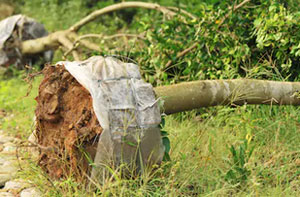
Excavating mature trees and transplanting them in a new location may sound challenging, but with powerful, modern lifting equipment and truck mounted tree spades, it's become a comparatively straightforward undertaking. Removing a tree from your property does not have to involve cutting it down and excavating the roots; a specialist tree moving company in Freshwater can remove and transplant even mature trees and repair the ground afterwards.
Transplanting a tree in Freshwater can be completed at any time of year, however in warmer summer months, soaking the surrounding soil becomes especially important so as to cause as little stress on the root system as possible. Moving an adult tree will involve a mechanical spade burrowing down and encompassing the root-ball, before raising the whole tree, unharmed, from the soil. The tree can then be temporarily stored before its re-planting in a new location.
If you wish to move a tree from ground that's got a preservation order upon it, a professional tree moving company in Freshwater can liaise with relevant authorities to approve replanting in a suitable area. (Tags: Tree Moving Freshwater, Tree Replanting Freshwater, Tree Transplanting Freshwater).
Dutch Elm Disease
A fungal disease that has killed off many millions of elm trees all around Great Britain during the last fifty years or so, Dutch Elm Disease (Ophiostoma novo-ulmi) is not quite the problem that it was previously. Caused by the Ophiostoma novo-ulmi fungus which is spread by the elm bark beetle (Scolytus), Dutch Elm Disease (DED) was imported into the British Isles inadvertently in the late Sixties from Canada.
After arriving in the UK, it was rapidly spread through the nationwide transportation of elm products such as bark mulch, saplings, crates, and logs with the bark still attached. It was not just the UK that was affected by this dreadful disease, because the stocks of elms were also destroyed in continental Europe and North America.
Normally first materializing in early summer, the recognisable signs of Dutch Elm Disease disease are:
- Twigs with dark streaks beneath the bark.
- Twigs that turn into a "shepherd's crook" shape.
- Affected shoots dying back from the tips.
- Clusters of leaves turning yellow, wilting and falling.
As there are now very few substantial elms in the British countryside, the beetle's habitat has been largely removed, the result of which has been a slowing of this disease. New plants have also been propagated from trees that have proved to be resistant up to now.
If you have elms in your garden in Freshwater, and are suspicious they might be afflicted with Dutch Elm Disease, get in touch with your local tree surgeon for advice, or put in a request for a diagnosis from the Tree Health Diagnostic & Advisory Service.
Trees affected - Ulmus and Zelkova.
Vectors - small beetles of the Scolytus and Hylorgopinus genera.
Cause - fungi Ophiostoma Novo-Ulmi and Ophiostoma Ulmi.
Tree Removal Freshwater
When a tree becomes unsafe, diseased, or simply too large for its surroundings, removing it can often be a necessary step. Trees play a vital role in our environment, yet there are occasions when they might endanger nearby properties or even individuals. Issues like overhanging branches, root damage, or the potential for a tree to fall can lead to the conclusion that removal is the safest course of action. Although it's a decision that shouldn't be made lightly, when the time comes, it can significantly enhance the safety and functionality of your outdoor space in Freshwater, providing you with greater peace of mind.

The process of tree removal isn't as straightforward as it might seem, particularly for larger trees. It requires careful planning and the right equipment to ensure it's done safely and efficiently. Professional tree surgeons have the expertise to assess the tree and determine the best way to remove it with minimal impact on the surrounding area. They'll also handle the disposal of the tree, saving you the hassle. Attempting to remove a tree yourself can be risky, so hiring an expert is always the best course of action for complex or large-scale jobs.
When a tree is removed, it opens up a world of possibilities for your outdoor area. The extra sunlight can be beneficial for surrounding plants, and the space that's freed up can be utilised for something fresh, like a garden feature, a patio, or a driveway. Whether you're making this decision for safety concerns or to improve the aesthetics of your garden, thoughtful tree removal can really change your Freshwater garden, making it a more pleasant place to spend time for years to come. (Tags: Tree Removal Freshwater).
Accidents Through Tree Surgery
As has been mentioned previously in this article, the work that is tackled by tree surgeons in Freshwater can be rather dangerous. Tree work involves a considerable risk of injuries to both operatives and those on the ground, therefore all possible safety measures should be taken when carrying out work on trees.
It would appear (as reported by the HSE), that the use of chainsaws, falls from trees, and being hit by a falling branch or tree are the cause of the vast majority of major and fatal injuries that are associated with tree work. The reality is that people involved in tree care have a greater likelihood of being seriously injured than those in building and construction.
The most accident claims, in terms of insurance, are for being struck by objects (trees, cranes, grapple hooks, ropes, branches etc), lifting injuries and slipping from ladders.
That's why hiring a knowledgeable Freshwater tree surgeon is so crucial when you've got tree care work that needs doing. In the tree care sector, the majority of accidents are down to unskilled workers attempting tasks that they aren't fully trained in, or equipped for. Using a trustworthy and experienced Freshwater company that has been working in the area for a number of years, is the easiest way to sidestep such issues, and get your tree care work completed as safely as possible.
The Use of Chainsaws

The most common piece of equipment that Freshwater tree surgeons use is the chainsaw. It is a versatile and effective tool, but in the wrong hands, also a dangerous one. Despite the fact that mains electric and battery versions of chainsaw can be purchased, the most preferred by professionals are driven by petrol, due to their ease of use and portability. Petrol chainsaws are really the only option for the heaviest tree work, being extremely powerful and able to effortlessly slice through trunks and branches of any proportions.
A chainsaw basically consists of a rotating engine-driven chain which is armed with a series of teeth that slice through the bark and inner wood of a tree. For the different functions they perform, there are various styles of chainsaw, pole saws for long distance pruning and hard to reach branches, top-handled for working at height (and which can be operated with one hand if required) and rear-handled for working on the ground (two handed).
You will very rarely find a professional Freshwater tree surgeon who does not use a chainsaw, despite the fact that clambouring up a tree with a rapidly twirling blade in your hand isn't a particularly safe thing to do. One of the main prerequisites for gaining membership of the AA (Arboricultural Association), is that professional tree surgeons must be fully trained in the maintenance and safe use of chainsaws.
There are numerous different brands and models of chainsaw, but the most commonly used by professionals in Freshwater are Hyundai, Makita, Husqvarna and Stihl.
Storm Damage Prevention Freshwater
While we're all aware of the extreme power of Mother Nature, big trees seem sturdy, strong and able to withstand more or less anything. Certain varieties of trees can in fact survive for hundreds (even thousands) of years and will do so happily in most situations.
Extreme weather conditions can however cause significant damage, and in addition to the danger of falling branches and limbs, entire trees can topple over in certain situations. Trees have got one main weather related enemy, and that is wind. As extreme weather events and severe storms become more and more common with climate change, this type of damage will happen with greater regularity in Freshwater in the future. Flooding or extended periods of rain will cause the soil around roots to become saturated, which is another issue for big trees, as is heavy snowfall during wintertime.
To trim and remove any dead, dying or overhanging branches that may cause a problem in severe weather conditions, it is recommended that you get a competent Freshwater tree surgeon to examine your trees fairly regularly.
Lightning rods, copper conductors, or other lightning protection systems are also recommended for bigger trees, to lower the chances of them being struck by lightning and to safeguard nearby property and buildings which might be vulnerable to side-flashes ("arcs") that result in more destruction, in addition to damage done to the tree itself. A lightning strike could kill a tree, or seriously weaken it, making it more vulnerable to disease and pest attacks. For those of you who believe that lightning isn't that common, there are approximately three hundred thousand strikes in Great Britain each year.
Your local Freshwater tree surgery firm will be able to offer guidance and advice on what can be done to safeguard your trees from being damaged by storms, and minimise the risk of accidents occurring as a result of this.
Pollarding Freshwater

Pollarding is mainly carried out for safety reasons and is a process for significantly reducing the size of trees which have outgrown their existing surroundings. It can at times be used for visual or practical motives to mould a tree into a particular form or shape. Trees which grow beside streets in Freshwater are often pollarded, as are those that are used for borders and in managed hedgerows. For folks who love trees this is not a popular technique, seeing as the result is inclined to be rather harsh and naked, with the overall appearance of being almost dead. The beneficial side of the pollarding process, is that trees that may normally need to be cut down can be saved. Pollarding is typically used on broad-leafed species like planes, sycamores, beeches, limes, maples, horse chestnuts and oaks. (Tags: Tree Pruning Freshwater, Pollarding Freshwater, Tree Pollarding Freshwater)
Tree Surgery Tasks Freshwater

Freshwater tree surgeons will likely help you with vegetation management, tree topping, tree watering in Freshwater, tree dismantling, stump removal, damage restoration in Freshwater, residential tree care, tree care services, tree planting, tree planning, tree lightening protection, tree transplanting, tree shaping, tree reduction, retrenchment pruning Freshwater, root decompaction, crown removal, eco-plugging, waste removal, fruit tree pruning, tree lopping, forestry management Freshwater, crown raising, tree staking, crown lifting, brush cutting, tree health monitoring in Freshwater, air spading, emergency tree removal, arboriculture Freshwater, crown reduction in Freshwater, removal of storm damaged trees, root removal, tree cabling in Freshwater, root flare exposure and other tree surgeon services in Freshwater, Isle of Wight. Listed are just a few of the tasks that are carried out by local tree surgeons. Freshwater specialists will let you know their whole range of services.
Tree Surgeons Near Freshwater
Also find: Yarmouth tree surgeons, Thorley Street tree surgeons, Thorley tree surgeons, Bouldnor tree surgeons, Easton tree surgeons, Pound Green tree surgeons, Brook tree surgeons, Hulverstone tree surgeons, Totland tree surgeons, Norton Green tree surgeons, Chessell tree surgeons, Norton tree surgeons, Shalcombe tree surgeons, Afton tree surgeons, School Green tree surgeons, Freshwater Bay tree surgeons and more. Most of these places are served by tree surgeons. Local residents and others can get quotations by going here.
Tree Care Services Freshwater
- Tree Dismantling
- Tree Reshaping
- Tree Surveys
- Stump Treatment
- Stump Grinding
- Crown Cleaning
- Shrub Maintenance
- Site Clearance
- Air-Spading
- Hedge Trimming
- Tree Transplanting
- Crown Thinning
- Tree Replanting
- Tree Pruning
More Freshwater Trades: Not surprisingly, whenever you happen to be having tree surgery done in Freshwater, Isle of Wight, you will probably be in need of other garden related services, and as well as a tree surgeon in Freshwater, Isle of Wight, you might also need grass cutting in Freshwater, garden shed installers in Freshwater, driveway pavers in Freshwater, patio installers in Freshwater, garden clearance in Freshwater, hedge clipping in Freshwater, gate installers in Freshwater, soil irrigation in Freshwater, garden rubbish removal in Freshwater, artificial grass installers in Freshwater, garden digging services in Freshwater, local SKIP HIRE in Freshwater, pond maintenance in Freshwater, garden planning and design in Freshwater, decking installers in Freshwater, landscape gardeners in Freshwater, and other different Freshwater tradespeople.
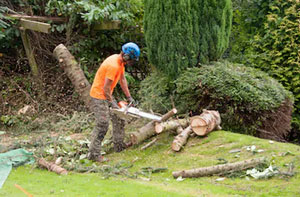 Tree Surgeon Freshwater
Tree Surgeon Freshwater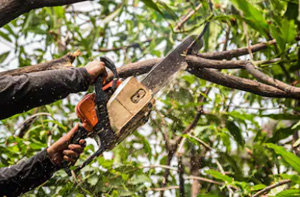 Tree Surgeons Freshwater
Tree Surgeons Freshwater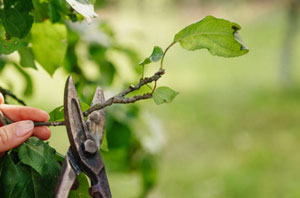 Tree Surgery Freshwater
Tree Surgery FreshwaterFor the best local Freshwater information click here
More: Tree Removal, Hedge Planting, Arboriculture, Shrub Maintenance, Crown Removal, Hedge Trimming, Tree Management, Tree Lopping, Tree Surveys, Tree Reduction, Tree Reduction, Tree Bracing, Soil Terraventing, Air-Spading, Tree Care, Eco-Plugging, Dead Wooding, Root Removal, Tree Inspections, Shrub Maintenance, Stump Grinding, Root Grinding, Arboriculture, Tree Maintenance, Hedge Reduction, Tree Surveys, Air-Spading, Arboriculture, Tree Watering, Tree Care.
Tree Surgery PO40 area, phone code 01983.
Tree Surgeon Freshwater - Tree Surgeons Near Me - Tree Pruning Freshwater - Tree Care Freshwater - Tree Surgeons Freshwater - Stump Removal Freshwater - Arboriculture Freshwater - Tree Surgery Freshwater - Woodland Management Freshwater





